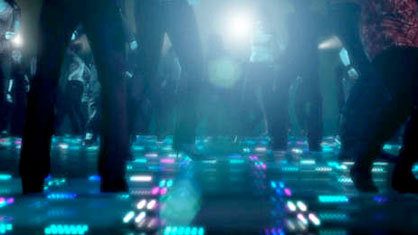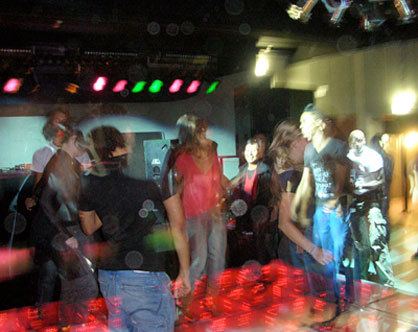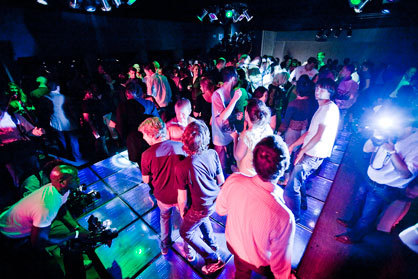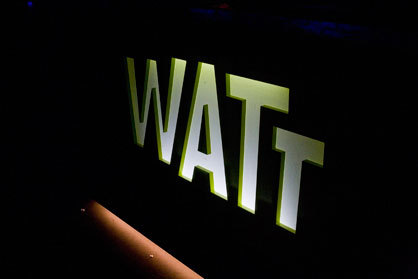WATT
Text by NoéMie Schwaller
Zürich, Switzerland
26.11.08
The world's first ecological disco opens in Rotterdam, Holland
At a new disco in Rotterdam clubgoers can not only drink and dance -- they can also do something for the environment. However, it's not a place where organic vegetables are sold. Instead the operators of 'Club Watt' are trying out an entirely new energy concept. It's called 'sustainable dance club - energy and water are btained in a sustainable way, in other words from regenerative sources. At Club Watt every evening around one third of the electricity requirements are generated by the dancers on the club's 30 m² special dance floor. The vibration on the dance floor transforms the energy of their movements into electricity with the help of mini dynamos.
Everything that happens at Club Watt is intended to be consistently sustainable -- from the toilets which flush using rainwater to the bar with its reusable plastic glasses fitted with a clip-on drink holder. The club's slogan is 'We want your energy'. How much energy is being transmitted to the club's own generator at any time can be seen on an illuminated display screen next to the DJ's stage as, well as from the LEDs fitted into the dance floor. The wilder the clubgoers dance, the brighter these LEDs light up.
The movement of the dancers causes the floor to vibrate, which activates a dynamo and electricity is generated. Foto: Marc Nolte
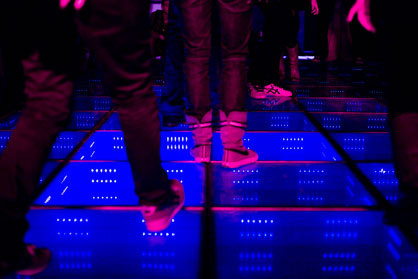
The movement of the dancers causes the floor to vibrate, which activates a dynamo and electricity is generated. Foto: Marc Nolte
×The concept was designed by architect Henk Döll and the environmental agency Enviu, together with the technical universities of Eindhoven and Delft. The project's developers are not simply interested in saving energy -- because clubgoers produce the energy they use themselves, they acquire an awareness of the need to preserve this energy.
The initiators of what they themselves describe as the world's first sustainable dance club -- among them DJ Ted Langenbach - freely admit that at something like 5 to 10 W per person, the proportion of human energy in the total electricity requirements of the club is still pretty small. They compare their ecological dance floor with the very first solar panels that were produced around 30 years ago. However, the engineers involved are already working on more effective installations which will enable a steady increase in the club's own energy generation levels. This is also necessary because club owners from Berlin, Toronto, Sao Paulo and Sydney have already expressed an interest in the concept. So let's dance for the environment!
